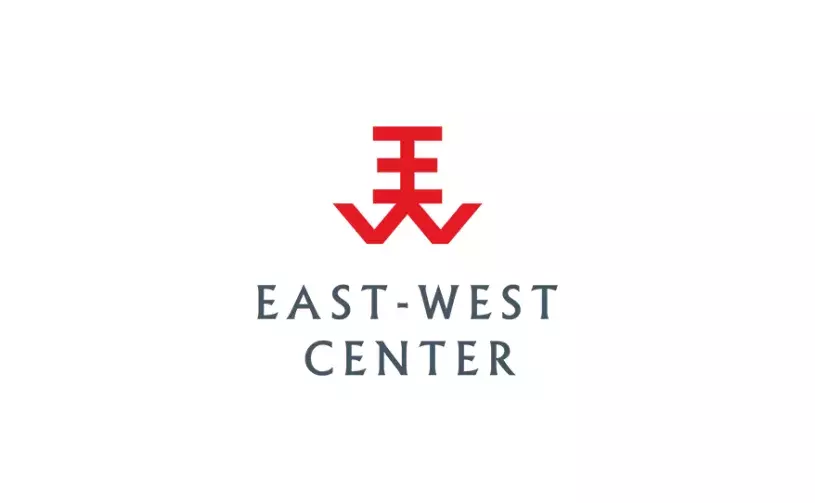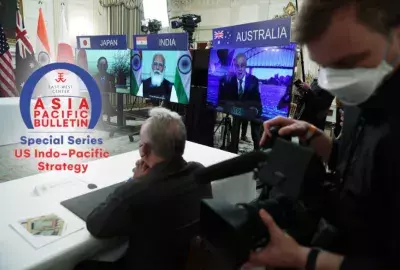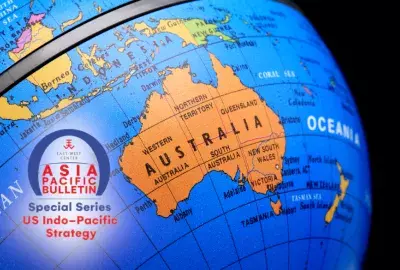Error message

|
Hillary C. Dauer, U.S. Foreign Service Officer, explains that “Many in both Tokyo and Okinawa admit that the Suga administration lacks sufficient on-the-ground knowledge in the prefecture to connect positively with Okinawans.” |
The ongoing political impasse between Japan’s central government in Tokyo and the Okinawa prefectural government over U.S. military basing threatens the long-term stability of the U.S.-Japan Alliance. In spite of the friction between the central government and the prefecture, and the much decried “burden” of U.S. bases on Okinawa there is relatively little deep-seeded resentment among the Okinawan people toward the U.S. military presence or the U.S.-Japan Alliance as a whole, especially among those born after the reversion of Okinawa to Japanese sovereignty in 1972. Surveys also show that Okinawans desire more dialogue with U.S. service members based in Okinawa. But a fraught Okinawan history with mainland Japan and economic marginalization have so far undermined the strong potential for good-faith dialogue that could break the impasse.
The relocation of U.S. military bases is essential to the U.S. and Japanese governments’ security policy vis-à-vis emerging threats in the region. Both governments realized in the 1990s that Okinawa could not remain a key power projection node in the Western Pacific if the bases remained a flashpoint of political controversy due to their proximity to densely populated communities. This potentially volatile situation was brought under intense scrutiny with the 1995 rape committed by three U.S. service members against an Okinawan junior high school student and the resulting agreement to close the Marine Corps Air Station at Futenma. Moreover, the construction of the Futenma Replacement Facility also factors into subsequent U.S. Pacific maritime realignment strategy. Further delays could leave Japan less secure and impair U.S. attempts to counter growing Chinese assertiveness in the East and South China Seas.
The Okinawan prefectural government and the anti-base parties that support it in the prefectural assembly have made U.S. military bases in Okinawa a political issue and have tried, on numerous occasions, to prevent or delay the relocation of several U.S. military bases, including but not limited to the Futenma base. There are currently numerous lawsuits through which the prefectural government is attempting to prevent construction of the Futenma Replacement Facility in northern Okinawa. Japanese courts have consistently rejected the prefecture’s arguments. In addition, the Okinawa prefectural government held a non-binding referendum on the Futenma Replacement Facility in February 2019, in which, despite underwhelming turnout, construction of the replacement facility was rejected by roughly 70 percent of those who voted. The wording of the referendum only addressed the Futenma Replacement Facility as a stand-alone issue and did not link its construction to the closure of the current Futenma base, as has been the consistent, stated U.S and Japanese policy. It is worth noting that the existing facility in Futenma impacts directly a far greater number of Okinawans than does its planned replacement in northern Okinawa.
In part to rectify the ongoing political rift between Tokyo and Okinawa, the new Suga administration wants to open more channels of dialogue between the central government and Okinawa, with a particular but not exclusive focus on economic issues. There is a substantial budget for Okinawan economic development controlled by the Cabinet Office, including subsidies and other inducements for investment. Nevertheless, many of these subsidies go unused, much to the chagrin of the central government.
In November 2020, the Suga administration held the “base burden reduction dialogue” for the first time in 14 months. And, contrary to much of the handwringing in the English language press over Suga’s intention to play “hardball” with Okinawa, many well-placed sources in the Japanese government and the think tank community say privately that the Suga administration wants more dialogue with Okinawa, though perhaps around and not through Okinawa Governor Denny Tamaki and the prefectural administration.
There is also a desire within Okinawa for better relations with the central government, set against the backdrop of evolving Chinese domestic and foreign policy. Usually left-leaning Okinawan newspapers now consistently run front page stories about democracy protests in Hong Kong with their editorial pages aghast at the Chinese government’s crackdown.
Though a solid majority identify as Japanese, Okinawans maintain a centuries-old indigenous identity shaped by close cultural and social interaction with China as well as a continuing, tangible connection to the United States, through the latter’s bases, which set the people of Okinawa apart from the shared sense of an essentialist, national identity attributed to Japanese from the main islands (which are still referred to occasionally as Yamato in Okinawa). Okinawa’s history as a once independent kingdom that experienced outside rule by Satsuma samurai and Imperial Japan, one of the bloodiest battles of World War II, and a prolonged occupation is unique to Japan. Hence, Okinawans yearn for Tokyo to better understand their distinct economic, political, and social challenges – some of which, though not all, stem from the U.S. military presence. Grumblings from the prefectural government that Tokyo’s Go To Travel campaign has accelerated the spread of COVID-19 in Okinawa are but one example of an issue not related to U.S. bases.
The Suga administration needs to avoid the perception that its predecessor Abe administration had of not lending a sympathetic ear to the sensitivities and identities of Okinawans. Many in both Tokyo and Okinawa admit that the Suga administration lacks sufficient on-the-ground knowledge in the prefecture to connect positively with Okinawans and affect their view of Tokyo. The lukewarm reaction to the role that former Okinawa vice governor Mitsuo Ageda may play as an interlocutor is perhaps an early warning sign.
Today, Okinawans’ concerns regarding military basing and a lack of economic development reflect centuries of sometimes fraught history. Okinawans believe there is a lack of understanding in Tokyo, and to a lesser extent Washington, for the history and intensity of these concerns. Yet, there is a reservoir of potential support for U.S.-Japanese security strategy in Okinawa. Arguably, nowhere in Japan is evolving Chinese maritime and defense policy felt more keenly than in Okinawa, flanked as it is by the East China Sea. Though the abstract vagaries of geopolitics may not pique the interest of the common Okinawan citizen trying to make ends meet amidst a global pandemic, a simple explanation of why they are asked to endure the very tangible and visceral effects of the U.S. military presence would go a long way in helping Okinawans believe they are full partners in the alliance. Taro Kono, whilst Defense Minister, said as much during a visit to Okinawa in September 2019. The base burden reduction dialogue is a good first step; however, the dialogue could be expanded to include discussions of the many new traditional and non-traditional security challenges in the region, including but not limited to resilience of global supply chains and cyber security. U.S. participation in these dialogues in the role of alliance partners (perhaps through a track 2 approach) would add depth and texture to the security discussion as well as demonstrate a level of respect for and openness to Okinawan concerns. Finally, inviting other countries around the region to share their perspectives, through official and unofficial channels, would lend credibility to the argument that the burden of a shifting security environment in not one that is born by Okinawans alone.
|
Hillary C. Dauer, U.S. Foreign Service Officer, explains that “Many in both Tokyo and Okinawa admit that the Suga administration lacks sufficient on-the-ground knowledge in the prefecture to connect positively with Okinawans.” |
The ongoing political impasse between Japan’s central government in Tokyo and the Okinawa prefectural government over U.S. military basing threatens the long-term stability of the U.S.-Japan Alliance. In spite of the friction between the central government and the prefecture, and the much decried “burden” of U.S. bases on Okinawa there is relatively little deep-seeded resentment among the Okinawan people toward the U.S. military presence or the U.S.-Japan Alliance as a whole, especially among those born after the reversion of Okinawa to Japanese sovereignty in 1972. Surveys also show that Okinawans desire more dialogue with U.S. service members based in Okinawa. But a fraught Okinawan history with mainland Japan and economic marginalization have so far undermined the strong potential for good-faith dialogue that could break the impasse.
The relocation of U.S. military bases is essential to the U.S. and Japanese governments’ security policy vis-à-vis emerging threats in the region. Both governments realized in the 1990s that Okinawa could not remain a key power projection node in the Western Pacific if the bases remained a flashpoint of political controversy due to their proximity to densely populated communities. This potentially volatile situation was brought under intense scrutiny with the 1995 rape committed by three U.S. service members against an Okinawan junior high school student and the resulting agreement to close the Marine Corps Air Station at Futenma. Moreover, the construction of the Futenma Replacement Facility also factors into subsequent U.S. Pacific maritime realignment strategy. Further delays could leave Japan less secure and impair U.S. attempts to counter growing Chinese assertiveness in the East and South China Seas.
The Okinawan prefectural government and the anti-base parties that support it in the prefectural assembly have made U.S. military bases in Okinawa a political issue and have tried, on numerous occasions, to prevent or delay the relocation of several U.S. military bases, including but not limited to the Futenma base. There are currently numerous lawsuits through which the prefectural government is attempting to prevent construction of the Futenma Replacement Facility in northern Okinawa. Japanese courts have consistently rejected the prefecture’s arguments. In addition, the Okinawa prefectural government held a non-binding referendum on the Futenma Replacement Facility in February 2019, in which, despite underwhelming turnout, construction of the replacement facility was rejected by roughly 70 percent of those who voted. The wording of the referendum only addressed the Futenma Replacement Facility as a stand-alone issue and did not link its construction to the closure of the current Futenma base, as has been the consistent, stated U.S and Japanese policy. It is worth noting that the existing facility in Futenma impacts directly a far greater number of Okinawans than does its planned replacement in northern Okinawa.
In part to rectify the ongoing political rift between Tokyo and Okinawa, the new Suga administration wants to open more channels of dialogue between the central government and Okinawa, with a particular but not exclusive focus on economic issues. There is a substantial budget for Okinawan economic development controlled by the Cabinet Office, including subsidies and other inducements for investment. Nevertheless, many of these subsidies go unused, much to the chagrin of the central government.
In November 2020, the Suga administration held the “base burden reduction dialogue” for the first time in 14 months. And, contrary to much of the handwringing in the English language press over Suga’s intention to play “hardball” with Okinawa, many well-placed sources in the Japanese government and the think tank community say privately that the Suga administration wants more dialogue with Okinawa, though perhaps around and not through Okinawa Governor Denny Tamaki and the prefectural administration.
There is also a desire within Okinawa for better relations with the central government, set against the backdrop of evolving Chinese domestic and foreign policy. Usually left-leaning Okinawan newspapers now consistently run front page stories about democracy protests in Hong Kong with their editorial pages aghast at the Chinese government’s crackdown.
Though a solid majority identify as Japanese, Okinawans maintain a centuries-old indigenous identity shaped by close cultural and social interaction with China as well as a continuing, tangible connection to the United States, through the latter’s bases, which set the people of Okinawa apart from the shared sense of an essentialist, national identity attributed to Japanese from the main islands (which are still referred to occasionally as Yamato in Okinawa). Okinawa’s history as a once independent kingdom that experienced outside rule by Satsuma samurai and Imperial Japan, one of the bloodiest battles of World War II, and a prolonged occupation is unique to Japan. Hence, Okinawans yearn for Tokyo to better understand their distinct economic, political, and social challenges – some of which, though not all, stem from the U.S. military presence. Grumblings from the prefectural government that Tokyo’s Go To Travel campaign has accelerated the spread of COVID-19 in Okinawa are but one example of an issue not related to U.S. bases.
The Suga administration needs to avoid the perception that its predecessor Abe administration had of not lending a sympathetic ear to the sensitivities and identities of Okinawans. Many in both Tokyo and Okinawa admit that the Suga administration lacks sufficient on-the-ground knowledge in the prefecture to connect positively with Okinawans and affect their view of Tokyo. The lukewarm reaction to the role that former Okinawa vice governor Mitsuo Ageda may play as an interlocutor is perhaps an early warning sign.
Today, Okinawans’ concerns regarding military basing and a lack of economic development reflect centuries of sometimes fraught history. Okinawans believe there is a lack of understanding in Tokyo, and to a lesser extent Washington, for the history and intensity of these concerns. Yet, there is a reservoir of potential support for U.S.-Japanese security strategy in Okinawa. Arguably, nowhere in Japan is evolving Chinese maritime and defense policy felt more keenly than in Okinawa, flanked as it is by the East China Sea. Though the abstract vagaries of geopolitics may not pique the interest of the common Okinawan citizen trying to make ends meet amidst a global pandemic, a simple explanation of why they are asked to endure the very tangible and visceral effects of the U.S. military presence would go a long way in helping Okinawans believe they are full partners in the alliance. Taro Kono, whilst Defense Minister, said as much during a visit to Okinawa in September 2019. The base burden reduction dialogue is a good first step; however, the dialogue could be expanded to include discussions of the many new traditional and non-traditional security challenges in the region, including but not limited to resilience of global supply chains and cyber security. U.S. participation in these dialogues in the role of alliance partners (perhaps through a track 2 approach) would add depth and texture to the security discussion as well as demonstrate a level of respect for and openness to Okinawan concerns. Finally, inviting other countries around the region to share their perspectives, through official and unofficial channels, would lend credibility to the argument that the burden of a shifting security environment in not one that is born by Okinawans alone.







